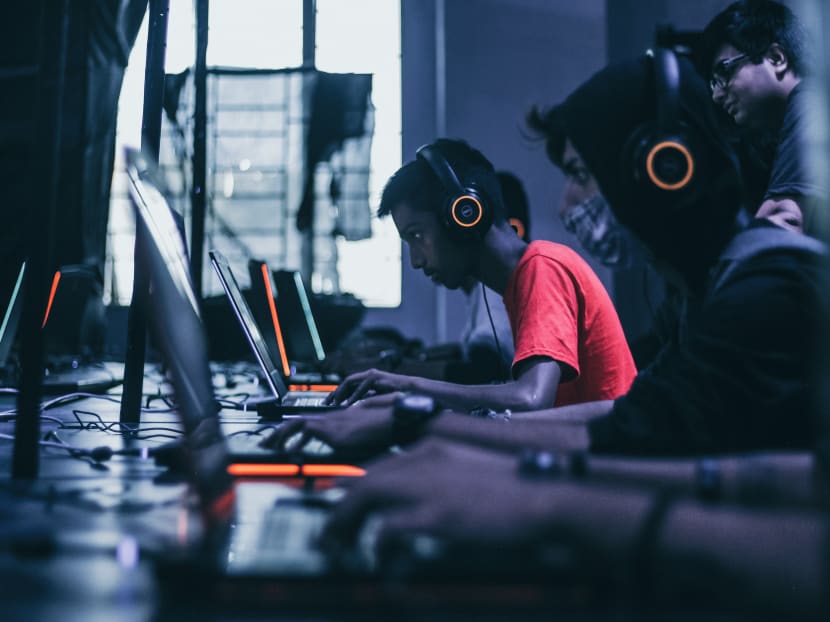Gen Y Speaks: Who says sexism is prevalent in gaming?
Charlize Tan’s short and incisive commentary laments sexism in video gaming culture. From her gaming experience of receiving sexist comments, she makes two main accusations towards the gaming community and industry as a whole.

Sexualisation of gaming characters should not be assumed to be inherently derogatory, and can promote empowerment rather than humiliation, says the author.
Charlize Tan’s short and incisive commentary laments sexism in video gaming culture. From her gaming experience of receiving sexist comments, she makes two main accusations towards the gaming community and industry as a whole.
She first claims that video games tend to be sexist since female characters are often sexually objectified and relegated to supporting roles. Next, she argues that despite making up almost half of all gamers, women face overwhelming discrimination within the gaming community.
Let us start with the more egregious claim, that video games are guilty of promoting, or at the very least, condoning misogynist beliefs through their representation of female characters.
“Female characters in video games are often objectified and sexualised. They are often seen in scandalous outfits showing off their large breasts with slim figures,” Charlize wrote.
“Other than their beautiful and sexy appearance, there’s really nothing praiseworthy of these characters…They are often cast aside as side or supporting characters or used as rewards and potential capture flags.”
This is a gross misrepresentation of video gaming in general. Many critically acclaimed and best-selling video games feature female characters that are neither objectified nor sexualised while maintaining a healthy male fanbase; the Super Mario and Pokemon franchises are prominent examples.
What about games aimed at a more mature audience, where violence and sexual imagery are commonplace? Recent top grossing and award-winning games like The Last of Us, the Bioshock trilogy and the Halo saga not only do not sexualise their female characters but also place them in active roles alongside their male counterparts.
One stark omission in Charlize’s commentary is her failure to point out that male characters are just as likely to be sexualised and objectified. This is often the case in fighting games such as the Street Fighter series, where the character designs have exaggerated features and physiques to emphasise their strength and skill.
While much has been said about Chun-Li’s thighs, or Cammy being dressed in a green leotard, most people would hardly bat an eyelid towards the inhumanly muscular physiques of Zangief, Gill and Urien, dressed in mere undergarments to highlight their imposing figures.
Finally, sexualisation should not be assumed to be inherently derogatory, as it can promote empowerment rather than humiliation.
Bayonetta, the titular protagonist of the fast-paced Sega action series, was designed by Mari Shimazaki, a female employee at Platinum Games.
Although Bayonetta is a hypersexualised character, with her provocative poses and skin-tight outfit which vanishes whenever she casts a particularly powerful spell, Shimazaki has openly stated that she sees the character as a personal power fantasy and that these explicit expressions of sexuality are a creative choice on her part and not a stipulation made by her superiors.
The fact that thousands of women willingly dress up as these sexualised characters during cosplay conventions further proves this point. Surely all of them can’t be in it for the money?
Charlize’s second point is guilty of omitting a key nugget of information. While it is true that women do make up almost half of the gaming population, many of them are more likely to be casual gamers who prefer social or puzzle games.
According to a study done by Quantic Foundry, women make up the majority of gamers who play “Match-3” and “Family/Farm Simulation” games.
However, in the case of shooting games such as PlayerUnknown’s Battlegrounds, the very game mentioned by Charlize, women make up only about 4 to 7 per cent of gamers. This distinction is important as the female-dominated genres are less likely to be competition-driven, while the male-dominated genres often include games you would see being considered for E-Sports competitions.
It is not hard to see how the more competitive a game’s community is, the more likely it is for one to be the victim of harassment or bullying, as each gamer would be focused on winning and proving their skill, and losses are perceived as a sign of inferiority.
The advantage of being anonymous during an online gaming session only exacerbates the situation, as the lack of repercussions gives certain individuals the audacity to behave in uncouth or abusive ways.
A quick search on YouTube would reveal years of video footage of gamers engaging in cyberbullying or harassment after losing a game, from accusing the other player of cheating to throwing racial epithets and making death threats.
Most of these bullies are male, but so are most of their victims. In comparison, the comments Charlize received were backhanded compliments at worst.
Of course, bullying and harassment should never be condoned, but this is not a gender-related issue. This is an unfortunate side-effect of the anonymity that is granted by the Internet. Regardless of one’s gender, sexuality or race, one is seldom exempt from receiving a rant — sometimes profanity-laden — by the player you just defeated.
Sexism in gaming is no different from experiencing sexism in other aspects of life. It can never be fully eradicated, but it is mercifully uncommon.
Perhaps, instead of being angry at her teammates and seeing this as proof of systemic discrimination, Charlize could simply move on to the next game, where the attitudes of teammates may be more to her liking.
After all, as the common adage goes, it really is just a game.
ABOUT THE AUTHOR:
Wong An Jie, 25, has been an avid gamer since he was 7. He recently graduated from the National University of Singapore with a degree in English Literature.






